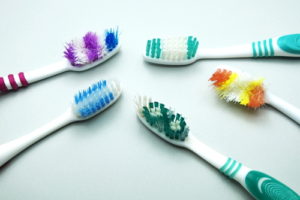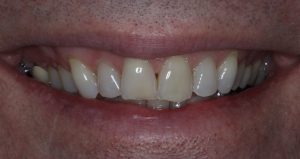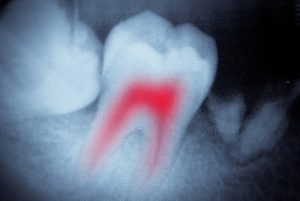Halloween is right around the corner, and it’s one of the most treat-filled holidays of the entire year. Because of all the candy that will be available to you and your young ones, all of us at our Buckhead dental office thought it would be a good opportunity to remind you of the worst types of candies for your teeth and offer some alternative suggestions.
Candy in itself isn’t the culprit. The bacteria present in everyone’s mouth is the actual cause of tooth decay and gum disease. The trouble with sugar is that it feeds these bacteria which then break the sugars down into acids. And those acids erode enamel. But there are other dangers associated with certain candies. We’ll cover it all right here!
- Sticky, chewy, taffy –These candies are one of the worst confections for your teeth ever created. Because they are so chewy and sticky, they get into and stay in cracks and crevices in your teeth, allowing the bacteria lots of time to feed on the sugar and create harmful acids. They also can pull out fillings and crowns in your teeth. Some of the common sticky candies include Sugar Daddys, Milk Duds, Bit-o-Honeys, Laffy Taffy, and Tootsie Rolls.
- Big, hard, toothbreakers like gobstoppers or jawbreakers — The primary danger of these candies is pretty easy to figure out. They can break teeth! Not only that, they last a really long time in the mouth which means more time for those bad bacteria to get to work destroying teeth.
- Gummies — These could be grouped into the taffy group, but they are such a big favorite with kids that we wanted to draw special attention to them. Gummies can, in fact, include fruit or juice based candies. These are just as potentially harmful to teeth as the kind with all those artificial ingredients! Why? Just like taffy, they stick to the teeth, wedge into crevices, and are very hard to rinse away. Again, lots of sugar for bacteria to work with.
- Sour candies — Sour candies are another big candy no-no, not only because of the sugar content, but also because they already contain the acids that erode teeth. Some highly acidic candies are almost as hard on teeth as battery acid.
If any of these come home in your child’s trick-or-treat bag, replace them with something healthier — and that doesn’t necessarily mean that it has to be an apple! Chocolate melts and rinses away easily. And candies and gum sweetened with Xylitol have pretty impressive oral and general health benefits!
We definitely are not suggesting that you and your little ones don’t enjoy trick-or-treating and the goodies that come with it. The real key to thinking about which candies to avoid is to consider how long you or your kid’s teeth will be exposed to it. The shorter the exposure time the better. Don’t forget to encourage brushing and flossing after treats, but if that isn’t possible, have your child rinse with fresh water to remove as much sugar as possible.
For more information about keeping your family’s teeth healthy all year round, please call our Buckhead dental office . We are here to keep smiles going strong.
Accepting new patients from Buckhead, Sandy Springs, and Dunwoody.















